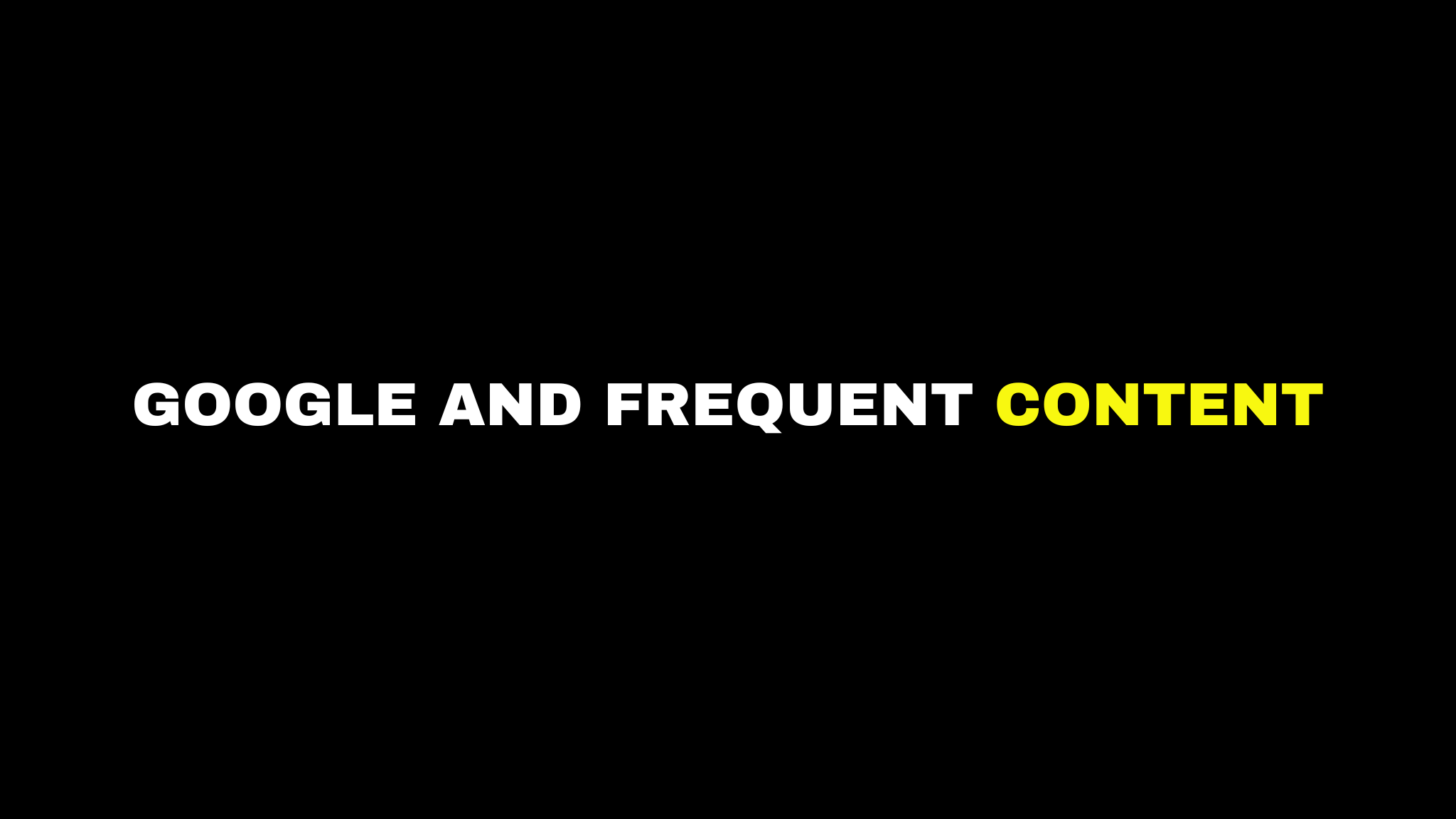For UK entrepreneurs and business owners earning between £50k-100k, this presents both an opportunity and a challenge. Whilst you understand the importance of content marketing strategy, the reality of creating consistent, SEO-optimised content can feel overwhelming, particularly when you’re already stretched thin managing other aspects of your business. The good news is that Google’s preference for quality content isn’t just about quantity – it’s about understanding what makes content truly valuable and how to leverage this knowledge for sustainable organic growth.
Google’s Algorithm Rewards Consistent Quality Content Creation
Google’s sophisticated algorithm evaluates content through hundreds of ranking factors, but quality remains paramount. According to comprehensive research on Google’s ranking factors, the search engine prioritises content that demonstrates expertise, authority, and trustworthiness – commonly known as E-A-T. When businesses consistently produce high-quality content, they signal to Google that they’re a reliable source of information within their industry.
The algorithm particularly favours websites that regularly publish fresh, relevant content because it indicates an active, engaged business that’s committed to serving its audience. This consistency helps establish topical authority – a crucial ranking factor that can significantly impact your organic search rankings. Companies that maintain a steady flow of quality content often see improved visibility across multiple search queries, not just their primary target keywords.
Understanding what SEO truly encompasses becomes essential when recognising why Google values content volume paired with quality. The search engine’s machine learning capabilities can identify patterns in user behaviour, rewarding sites that consistently satisfy search intent with valuable, comprehensive information.
Quality Content SEO Builds Trust and Authority
Trust signals are fundamental to Google’s ranking methodology, and quality content serves as one of the strongest indicators of a trustworthy website. When you consistently publish well-researched, accurate, and helpful content, you’re building what SEO experts call “domain authority” – your website’s perceived credibility in the eyes of both users and search engines.
Google’s algorithm can detect various quality signals within your content, including depth of coverage, factual accuracy, proper citation of sources, and user engagement metrics. Companies that invest in creating comprehensive, well-structured content often see improvements in their overall search visibility because Google recognises them as authoritative sources within their niche.
The relationship between content quality and trust extends beyond just ranking factors. When users consistently find valuable information on your website, they’re more likely to return, share your content, and engage with your brand – all of which send positive signals back to Google about your site’s value and relevance.
How Quality Content Improves Google Rankings Through User Experience
Google’s primary objective is delivering the best possible user experience, which means prioritising content that genuinely helps users achieve their goals. Quality content that addresses specific user needs and provides comprehensive answers tends to perform better in search results because it aligns with Google’s user-first approach.
The search engine measures various user experience metrics, including time spent on page, bounce rate, and click-through rates from search results. When your content effectively engages users and keeps them on your site longer, these positive engagement signals contribute to improved rankings over time.
Moreover, quality content often attracts natural backlinks from other websites, which remain one of Google’s strongest ranking factors. When other sites reference and link to your content, it serves as a vote of confidence in your expertise and authority, further boosting your search engine visibility.
Google Algorithm Content Preferences: What Really Matters
Google’s algorithm has evolved significantly over the years, moving away from keyword-focused ranking to a more sophisticated understanding of content quality and user intent. The search engine now evaluates content based on several key criteria that determine its ranking potential.
- Comprehensive coverage: Content that thoroughly addresses a topic tends to rank higher than superficial treatments
- Original insights: Unique perspectives and original research are heavily favoured over rehashed information
- Regular updates: Fresh content signals an active, maintained website that provides current information
- Semantic relevance: Content that naturally incorporates related terms and concepts demonstrates topical expertise
- User-focused structure: Well-organised content with clear headings and logical flow improves user experience
The Business Impact of Consistent Content Creation
For businesses operating with limited marketing budgets, understanding why Google prefers quality content can be transformative. Rather than competing solely through expensive paid advertising channels, consistent content creation offers a sustainable path to organic growth that compounds over time.
Companies that commit to regular content publication often experience what’s known as the “content compound effect” – where each piece of quality content contributes to overall domain authority, leading to improved rankings across all pages. This approach is particularly valuable for businesses looking to reduce their reliance on paid marketing whilst building long-term organic visibility.
Research from the Content Marketing Institute reveals that businesses struggle with measuring content performance ROI, with 56% citing difficulty in attributing returns to content efforts. However, the long-term benefits of consistent, quality content creation often outweigh the initial investment challenges.
Overcoming Content Creation Challenges
We understand that creating quality content consistently can feel daunting, especially when you’re managing multiple business responsibilities. The key lies in developing efficient systems and leveraging the right tools to streamline your content creation process without compromising on quality.
Modern SEO content creation has been revolutionised by AI-powered platforms that understand Google’s ranking preferences. Recent studies on AI-generated content for SEO show that when properly implemented, AI can assist with keyword research, content gap analysis, and optimisation for secondary keywords whilst maintaining the quality standards Google demands.
The most successful approach combines AI efficiency with human expertise, ensuring that your content not only meets Google’s technical requirements but also resonates with your target audience. This hybrid approach allows businesses to scale their content production whilst maintaining the quality and authenticity that both users and search engines value.
Building Your Content Strategy for Google Success
Creating a sustainable content strategy that Google loves requires understanding both technical SEO requirements and user needs. Start by identifying the topics and questions your target audience frequently searches for, then develop comprehensive content that addresses these queries better than your competitors.
Focus on creating content clusters around your core business topics, with each piece supporting and linking to related content on your site. This approach helps establish topical authority whilst providing Google with clear signals about your areas of expertise.
Remember that consistency trumps perfection when building long-term organic growth. Regular publication of quality content, even if not perfect, will outperform sporadic bursts of exceptional content in Google’s eyes. The search engine values websites that demonstrate ongoing commitment to serving their audience with fresh, relevant information.
At SmashSEO, we’ve designed our platform specifically to help businesses like yours overcome the challenges of consistent, quality content creation. Our AI-powered system incorporates SEO best practices directly into the content generation process, ensuring that every piece you create is optimised for Google’s ranking factors whilst maintaining the quality and authenticity your audience expects. Start your journey towards sustainable organic growth and discover how efficient content creation can transform your digital presence.
Frequently Asked Questions
How much content do I need to publish to see improvements in Google rankings?
There’s no magic number for content frequency, but consistency is key. Google favours websites that publish fresh content regularly, whether that’s weekly, bi-weekly, or monthly. The important factor is maintaining a consistent schedule whilst ensuring each piece meets quality standards. Most businesses see initial improvements within 3-6 months of consistent, quality content publication, with more significant results appearing after 6-12 months of sustained effort.
Can AI-generated content rank well on Google if it’s high quality?
Yes, Google has stated that AI-generated content can rank well if it provides value to users and meets quality guidelines. The search engine focuses on content quality rather than how it’s created. However, AI content should be reviewed, edited, and enhanced with human expertise to ensure accuracy, relevance, and alignment with your brand voice. The key is using AI as a tool to enhance efficiency whilst maintaining editorial standards.
What’s the difference between content quantity and quality for SEO purposes?
Quality always trumps quantity in Google’s ranking algorithm. A single comprehensive, well-researched article that thoroughly addresses user intent will outperform multiple shallow pieces on the same topic. However, having a substantial volume of quality content helps establish topical authority and captures more search opportunities. The ideal approach combines both: consistent publication of high-quality, valuable content that serves your audience’s needs.



